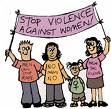In the cities, the streets were all but deserted. In the country, the queues stretched for metres. But everywhere the mood was the same: fear, dread and resignation.
The dawn that illuminated President Mugabe’s pantomime election day could not have been more different to that of three months ago, when three challengers shared the ballot with him and voters got up before first light, quivering with excitement to be part of the change they sensed was imminent.
An e-mail being passed around from the Movement for Democratic Change leader Morgan Tsvangirai urged supporters not to boycott the polls if doing so would put their lives at risk.
“Whatever might happen, the results ... will not be recognised by the world,” said Tsvangirai. “God knows what is in your hearts. Don’t risk your lives.”
The result, he added, would “reflect only the fear of the people of Zimbabwe” and he urged the international community to reject it.
The atmosphere of fear on Friday was extraordinary. In the capital, police patrolled every block while white pick-up trucks, carrying Zanu-PF youth militia, hurtled around the streets, their passengers singing revolutionary songs and heckling passers-by, demanding to know why they were not voting.
At farms south of the capital, huge queues outside polling stations were watched over by party officials. There and in the slum areas of Mbare and Epworth, groups of voters arrived at the stations, accompanied by local Zanu-PF members, who ticked their names off lists and summoned them one by one to vote.
Along highways in Masvingo and Mashonaland scores of roadblocks had sprung up overnight, mostly manned by Zanu-PF militants. Motorists were stopped and ordered to head to the polls if they could not show the tell- tale little finger dyed pink with indelible ink, proving they had voted.
Frances, a staunch MDC supporter, said that she had gone to vote purely to get her finger marked because of “Operation Red Finger”, a reprisal campaign that the regime has promised to launch against anyone unable to prove that they voted.
“If we don’t vote, they don’t see the finger. We will be in trouble. They called it Operation Red Finger” she said.
At a rally, the militia gave warning that failing to vote would be fatal. “They are going to cut off our heads,” said Frances. “We believe them because many people in Mbare were butchered.”
Frances opted to spoil her ballot. It was an act of almost foolhardy bravery: she had to dodge the party officials outside recording the serial numbers of everyone’s ballot paper in order to check them after the vote.
Inside the station, election officials directed vendors from the sprawling Mbare market to the ballot box, warning them that if a single MDC vote was found there they would all be driven out of the market.
Similar patterns of coercion and intimidation were reported across the country, suggesting a highly orchestrated and centralised campaign. Voters in some areas were told to pretend they could not write and to ask for help from police or party officials.
International condemnation was swift. Foreign ministers of the G8 industrialised nations meeting in Kyoto denounced the systematic violence, obstruction and intimidation in Zimbabwe and demanded that the government work with the opposition. “We will not accept the legitimacy of any government that does not reflect the will of the Zimbabwean people,” the ministers said in a statement.
In an interview with The Times, UK foreign secretary David Miliband described Zimbabwe’s economic collapse and political brutality as “a scar on the whole continent”.
He said: “I think that there’s now a real responsibility on the African Union, as well as the SADC (Southern African Development Community). There are leaders across the AU speaking out, and I think that’s very significant. The AU is going to have to be part of the solution. It’s very clear to the UK that there’s no legitimacy for the government of Robert Mugabe.”
Both the US and the EU dismissed the election as a sham. In an interview with Channel 4 on Friday night, Archbishop Desmond Tutu implored the Zimbabwean leader to quit. “For goodness sake, Mr Mugabe, you can end this tragedy — step down,” he said.
He added that Africa’s leaders “should declare Mr Mugabe illegitimate if he claims that he is the newly elected president of Zimbabwe”.
Few outsiders have been allowed in to observe the vote. Among those present were monitors from the Pan African Parliament and the SADC. Their early assessments were grim. “The people are reluctant to talk,” Khalid Dahab, the Pan African Parliament spokesman said. “Some of them are saying, ‘We were told to come here’. It’s just not normal. There’s a lot of tension.”
A SADC observer said that the elections “were worse than those we witnessed in Angola in 1992, after decades of war, and are not credible”. Domestic monitoring groups called off their plans to observe the vote because of the extreme violence their volunteers have been subjected to.
As the election drew to a close, fears were rising of a rapid backlash against those who refused to vote. The Zimbabwean people have been warned that the intimidation will not end with the election. The pungwes (indoctrination sessions), which millions have been forced to attend, are to continue in case people “forget” who they should support. — ©The Times, London
The dawn that illuminated President Mugabe’s pantomime election day could not have been more different to that of three months ago, when three challengers shared the ballot with him and voters got up before first light, quivering with excitement to be part of the change they sensed was imminent.
An e-mail being passed around from the Movement for Democratic Change leader Morgan Tsvangirai urged supporters not to boycott the polls if doing so would put their lives at risk.
“Whatever might happen, the results ... will not be recognised by the world,” said Tsvangirai. “God knows what is in your hearts. Don’t risk your lives.”
The result, he added, would “reflect only the fear of the people of Zimbabwe” and he urged the international community to reject it.
The atmosphere of fear on Friday was extraordinary. In the capital, police patrolled every block while white pick-up trucks, carrying Zanu-PF youth militia, hurtled around the streets, their passengers singing revolutionary songs and heckling passers-by, demanding to know why they were not voting.
At farms south of the capital, huge queues outside polling stations were watched over by party officials. There and in the slum areas of Mbare and Epworth, groups of voters arrived at the stations, accompanied by local Zanu-PF members, who ticked their names off lists and summoned them one by one to vote.
Along highways in Masvingo and Mashonaland scores of roadblocks had sprung up overnight, mostly manned by Zanu-PF militants. Motorists were stopped and ordered to head to the polls if they could not show the tell- tale little finger dyed pink with indelible ink, proving they had voted.
Frances, a staunch MDC supporter, said that she had gone to vote purely to get her finger marked because of “Operation Red Finger”, a reprisal campaign that the regime has promised to launch against anyone unable to prove that they voted.
“If we don’t vote, they don’t see the finger. We will be in trouble. They called it Operation Red Finger” she said.
At a rally, the militia gave warning that failing to vote would be fatal. “They are going to cut off our heads,” said Frances. “We believe them because many people in Mbare were butchered.”
Frances opted to spoil her ballot. It was an act of almost foolhardy bravery: she had to dodge the party officials outside recording the serial numbers of everyone’s ballot paper in order to check them after the vote.
Inside the station, election officials directed vendors from the sprawling Mbare market to the ballot box, warning them that if a single MDC vote was found there they would all be driven out of the market.
Similar patterns of coercion and intimidation were reported across the country, suggesting a highly orchestrated and centralised campaign. Voters in some areas were told to pretend they could not write and to ask for help from police or party officials.
International condemnation was swift. Foreign ministers of the G8 industrialised nations meeting in Kyoto denounced the systematic violence, obstruction and intimidation in Zimbabwe and demanded that the government work with the opposition. “We will not accept the legitimacy of any government that does not reflect the will of the Zimbabwean people,” the ministers said in a statement.
In an interview with The Times, UK foreign secretary David Miliband described Zimbabwe’s economic collapse and political brutality as “a scar on the whole continent”.
He said: “I think that there’s now a real responsibility on the African Union, as well as the SADC (Southern African Development Community). There are leaders across the AU speaking out, and I think that’s very significant. The AU is going to have to be part of the solution. It’s very clear to the UK that there’s no legitimacy for the government of Robert Mugabe.”
Both the US and the EU dismissed the election as a sham. In an interview with Channel 4 on Friday night, Archbishop Desmond Tutu implored the Zimbabwean leader to quit. “For goodness sake, Mr Mugabe, you can end this tragedy — step down,” he said.
He added that Africa’s leaders “should declare Mr Mugabe illegitimate if he claims that he is the newly elected president of Zimbabwe”.
Few outsiders have been allowed in to observe the vote. Among those present were monitors from the Pan African Parliament and the SADC. Their early assessments were grim. “The people are reluctant to talk,” Khalid Dahab, the Pan African Parliament spokesman said. “Some of them are saying, ‘We were told to come here’. It’s just not normal. There’s a lot of tension.”
A SADC observer said that the elections “were worse than those we witnessed in Angola in 1992, after decades of war, and are not credible”. Domestic monitoring groups called off their plans to observe the vote because of the extreme violence their volunteers have been subjected to.
As the election drew to a close, fears were rising of a rapid backlash against those who refused to vote. The Zimbabwean people have been warned that the intimidation will not end with the election. The pungwes (indoctrination sessions), which millions have been forced to attend, are to continue in case people “forget” who they should support. — ©The Times, London

























No comments:
Post a Comment